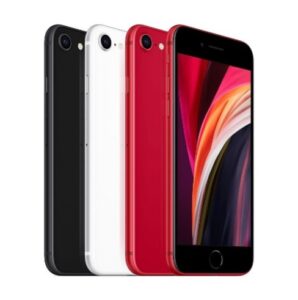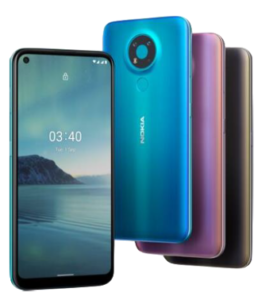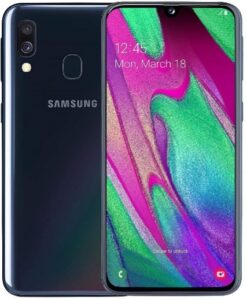What are the top 3 Smartphones for business use?
The importance of business mobiles
Mobile phones can be an essential piece of equipment for any business workforce. With the right plans and devices, your customers and employees benefit from increased flexibility, mobility, and productivity.
With mobile phones swiftly evolving, it is common for the modern smartphone to have the same processing power as a laptop, with the bonus of super-fast 5G access. The improved power and connectivity speeds give your employees the ability to work from practically anywhere; employees can access e-mails, answer calls, and attend virtual conferences on the move. In addition, if their broadband were to go down at home or in the office, they could hotspot to a business mobile.
Your support staff and account managers are much more accessible for customers to contact, regardless of location. Additionally, mobile phones can integrate with a hosted telephony system, so users can divert inbound calls to staff mobiles if the business landline is busy. This is a great way to ensure no call or opportunity is missed.
Things to consider before choosing a smartphone for your business
Excalibur has been working with mobiles since 1993; we have seen it all unravel – the first flip phone, the hype around of Nokia’s game ‘snake’, and the extraordinary introduction of the first iPhone in 2007. Since then, the mobile market has exploded – business mobile phone providers continually compete by releasing new innovative devices that boast numerous distinguishing features and additional customizability.
There are many options out there, and it can be easy to rush into a contract and end up paying more than you need to. However, we think the below factors are key in understanding what smartphone will best serve your business workforce.
- Value for money
- Camera quality
- Mobile Device Management (MDM) compatibility
- Battery life
- 5G compatibility
- Processing power
It can be really challenging to compare with every device out there. We tend to find most customers will be influenced by personal preference and consumer behaviours. Fear not; we have the answer.
We quickly analysed our customer purchasing data and identified the current top three business mobile phone providers as Apple, Samsung, and Nokia to narrow it down. This probably comes as no surprise to most, as the three big players in the UK smartphone industry.
Below we look at the most popular business handset each brand has to offer:
Apple: iPhone SE (2020)
Our current best-selling Apple device.

With 64GB, 128GB, or 256GB storage, the iPhone SE (2020) is Apple’s most affordable smartphone on the market. It has a 4.7” Retina HD display with True Tone technology and features aerospace-grade aluminium with reinforced and durable glass.
It is powerful and resilient. The iPhone SE (2020) has the same processing power as the iPhone 11 and features IP67 water and dust resistance. An equally impressive feature is its picture capture qualities, a 12-megapixel rear camera and 7-megapixel front-facing camera. This can be especially useful for staff who like to share media content on social media.
Overall, this device boasts great value for money and is a popular choice for businesses who want that familiarity with an Apple device.
Check the full specifications here.
Nokia 3.4
Affordable and surprisingly powerful

Nokia can sometimes be overlooked when searching for a powerful smartphone. However, with the release of the Nokia 3.4 in late 2020, there has been a surge of customers selecting it as their preferred business mobile.
With an impressive OS android 10 processor, a triple camera with AI imaging and a handy 2-day battery life for such a low price, there is no surprise it deserves a place in the top 3.
Overall, the Nokia 3.4 is resilient, reliable and performs extremely well for its price. It sits around the £100 mark and provides everything you need from a business smartphone.
Check the full specifications here.
Samsung Galaxy A40
Versatile, compact, and cost-effective

Released in April 2019, the Samsung Galaxy A40 is the most compact handset in Samsung’s A-series line-up while still embodying everything great about these midrange phones.
It is supposed to be a compact, well-balanced mid-ranger with a Super AMOLED screen serving as a key selling point and main advantage over its direct rivals. It also offers an ultra-wide-angle camera as a bonus, which is a rare find in the segment.
Starting around the £190 mark, it copes well with most business applications and provides a good number of features and processing power.
Check the full specifications here.
How to keep your business mobile safe with MDM (Mobile Device Management)
Another thing to think about when exploring business mobile phone providers is their Mobile Device Management solutions available. With business mobiles containing a lot of sensitive data, it is essential to have the correct MDM system in place to ensure your business is not impacted if a mobile device is stolen, broken or misplaced.
Main things to consider when choosing an MDM:
- Compatibility with your device
- If it provides the right level of control
- The level of security you need
Some useful things to know about device compatibility:
- Apple are very restrictive with how much they open their devices to MDM solutions if it is not their own.
- Samsung has several MDM solutions that they offer and support, but being android based, they are compatible with most MDM systems.
- Nokia is compatible with most MDM’s since it’s android based.
Could I get a business SIM card for my personal mobile instead?
There is an option for some businesses to get a business sim card so employees can use their own device instead. Although this can provide a small degree of flexibility, it brings a few difficulties to businesses in the long term.
Difficult to monitor staff’s data usage
Since it’s the employee’s personal device, they will often use their smartphone for personal things. This can include browsing social media, watching videos, and making personal calls. Unfortunately, businesses can’t accurately measure these actions, yet they all consume data from business sim cards that the business is paying for.
Staff take their number with them
If a customer has been in regular contact with an individual in your business, they may associate that mobile number with your business. If the employee leaves the business, they will be taking that personal number with them. This could be disrupting and unprofessional for the customer.
Network restrictions
Another limitation to going down the business SIM card route is that some networks will limit the amount of SIM cards your business can use, especially if you’ve missed a bill or have a poor credit rating.
Security risk
The biggest risk to going down the business sim cards route is the security risk. You are mixing business data with their personal device, and there are too many complexities to placing an MDM system on employees’ personal mobiles. Furthermore, there’s very little protection to your businesses data with no MDM if something happened to their smartphone.
Making the right choice
In summary, there is a lot to consider when choosing the right business mobile for your business. Vicky Selvon, Head Of Operations at Excalibur, says:
When choosing a mobile device for your business, it is straightforward to go with what you know and your personal preference. However, this isn’t always the right choice for your business or users; try to think logically and remember you don’t have to have the same device across the business. Each department will have different needs.
When our customers ask us what device is best, we ask the below questions: –
- Who is the user, e.g. Management, Driver, Engineer?
- What will the devices be used for? Emails, Calls, Pictures etc.…
- What is your budget?
- Any specifics – Battery longevity, Photo Quality, 5G, Wifi Calling
Other things to think about work devices aren’t treated with the care a personal device is. So why not protect the device from day one as best you can? Make sure you protect your devices with Tempered Glass screen protectors and a durable case; this will save your business hundreds in repair or replacement costs. The average screen protector and case package we offer is approx. £15 depending on the device, this doesn’t compare to replacing a screen which starts from £60 upwards.
If you need help finding the right smartphone and business tariff, get in touch, and we’ll be happy to advise!






